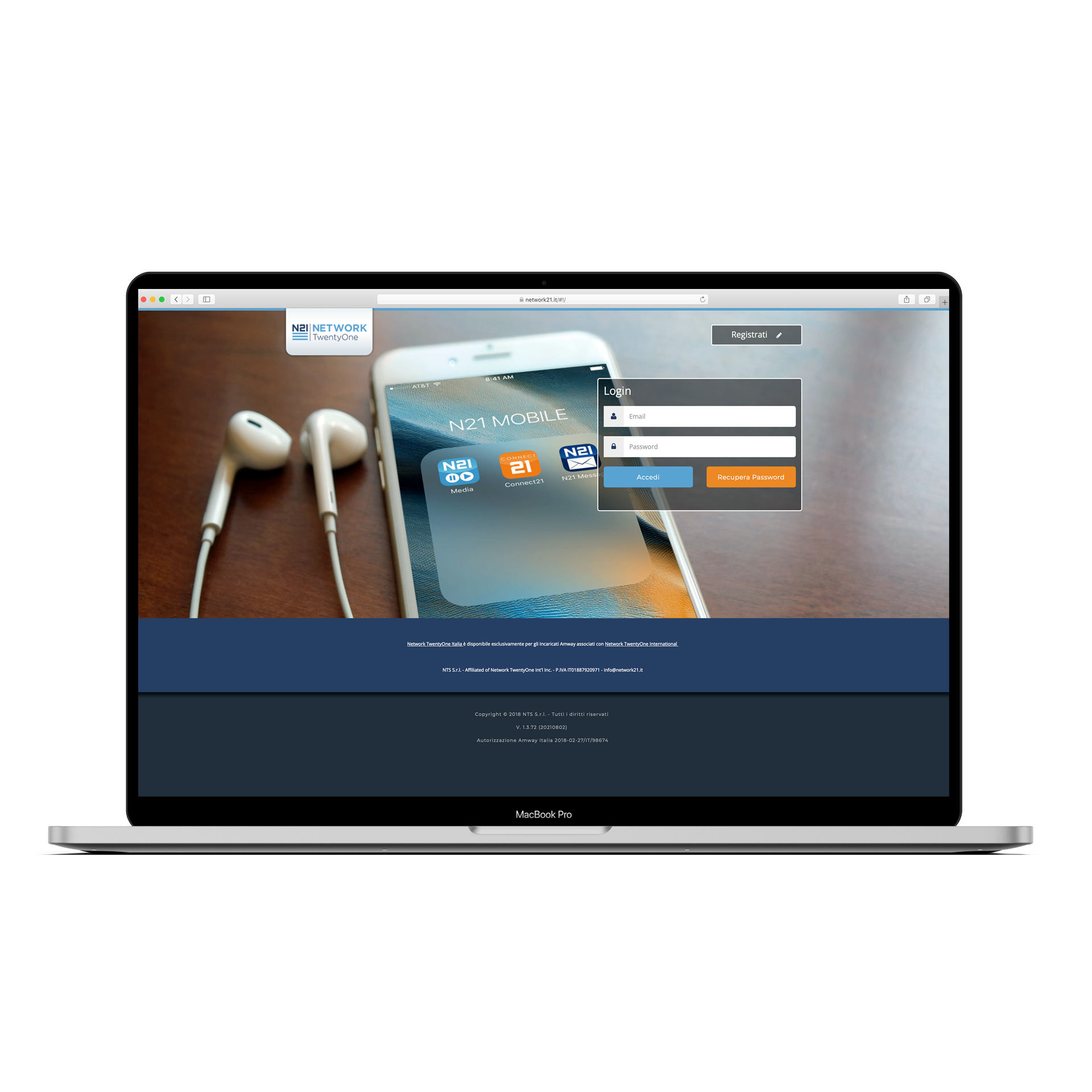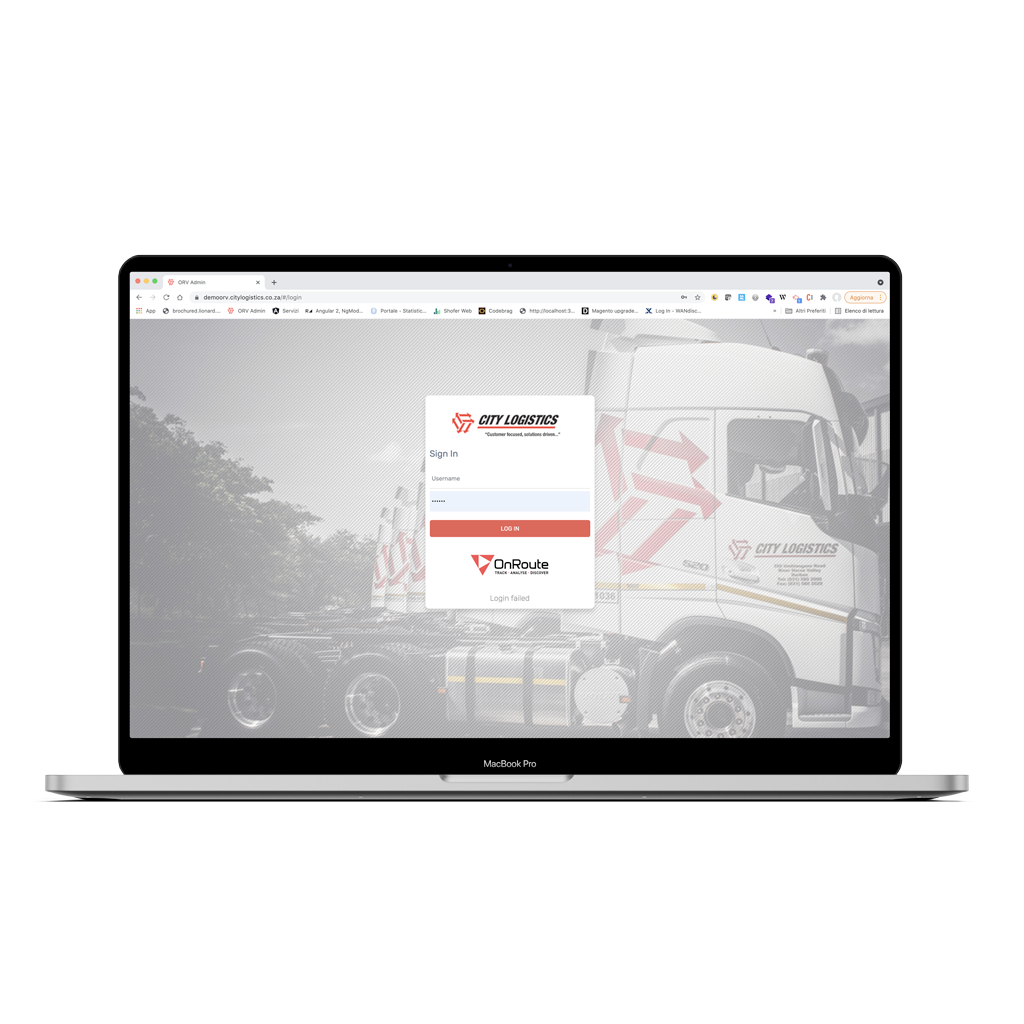Business digitalisation and Industry 4.0
In a constantly evolving world, in which it's estimated that 65% of children under 6 will end up working in jobs that don't exist today, companies are faced with one of the most complex challenges: digitising their processes to stay on the market. We have the experience and success stories to support you on this journey.

We support companies in the digitalisation of processes
Take advantage of the opportunities that technology offers in order to increase performance and reduce costs to remain competitive on a global market; we'll help you achieve this goal.Digitalisation requires more than just converting paper format into digital or purchasing a CRM license to replace the XLS files in a customer's archive. Digitalisation is a complex process, especially for companies with a stable and well-established history and business. It requires an important shift in mindset and abandoning methodologies and strategies that are part of a "dangerous" comfort zone.
Structuring correct communication with management is often very complex as the digitalisation process is seen as an unnecessary expense and not a high-yield investment. Therefore, the first step is to reorganise, introducing or training professionals with digital skills ready to launch and manage the transformation process after analysing the company's situation.
We can act as innovation managers, helping you define your company's current situation and achievable goals. We'll jpintly determine the interventions to carry out and define a strategy and a timeline for the developments and the introduction of new tools or methodologies. We'll develop a training plan and the transfer of know-how to your employees to minimise the risks deriving from the shift. Together, we'll build an information environment in which making informed and data-based decisions will be the norm.
Strategies for calculating the return on investment (ROI) of digitalisation.
The evaluation of a strategic and long-term investment cannot be separated from an estimate of the ROI. Find out the advantages and costs associated with digitalisation, and evaluate whether you can access financing or subsidies.Calculating the ROI of digitalisation cannot be separated from the definition of metrics (KPIs) that must not coincide with those used to evaluate traditional technological investments. Furthermore, each digitalisation project features such specific characteristics that make it impossible to define general guidelines. Nevertheless, our experience allows us to identify advantages (and potential cost savings) and the general costs related to digitalisation that can be useful to indicate the elements to be considered.
The positive factors, capable of driving an increase in revenues or a reduction in costs, include:
- the automation of processes and the increase in their efficiency;
- increased availability of information for the benefit of internal communication;
- reduced human resource costs, or greater productivity at the same cost;
- improved customer service and perceived quality;
- the dematerialisation of paper.
On the other hand, the general costs derive from:
- customisation and implementation of the solution;
- security and compliance with Italian legislation.
There are numerous incentives that support investments in digitalisation in the current panorama of subsidised financing. Consequently, this aspect must also be taken into account when evaluating the ROI.
In the current context, digitalisation is a crucial element to keep a company competitive in the market. Contact us for an obligation-free discussion and find out how to commence digitalising your company.

Remote Working We enable companies to work remotely
As part of the ongoing pandemic and related health emergency, we assist companies in organising infrastructure and processes to enable employees to be productive by working remotely without compromising security.Remote Working has officially existed for several years, also as prescribed by law, yet it has only recently become a fundamental need for all companies in response to the restrictions deriving from the pandemic. According to statistics from the Italian Ministry of Labour, between 2019 and 2021, the number of workers who carried out their duties outside the company headquarters grew by approximately 1700%, affecting over 10 million people. It's also estimated that, in the future, flexible location working will become a significant component in negotiations during the hiring process. Therefore, no company can fail to equip itself with the technologies and tools to enable a remote workplace in a correct and secure way.
At a technological level, in addition to the issues related to devices and connectivity that must be guaranteed in the employee's home, companies must work to ensure all the tools and software integrations that increase the transparency and visibility of data, facilitate communication and increase the efficiency of all those processes that risk being penalised if the relationship between team members is lost. At a development level, we've integrated tools such as Zoom, GoToMeeting, Slack, Google Drive, Telegram and Whatsapp Business within existing flows and created dashboards and frontend components that enable the management's non-intrusive control of their workforce.
Finally, another aspect concerns security or avoiding having to compromise security when enabling remote working. The recent attack on the Lazio region, which originated from an employee's remote workstation, has highlighted the need for a project capable of predicting the exposure of applications to risks not present in on-premise work scenarios.
Between 2020 and 2021, we've carried out numerous projects focused on transitioning on-premise applications towards secure, remotely accessible solutions. Ask us how we can support you with regard to these issues.
Industry 4.0, we help companies to seize market opportunities.
The fourth industrial revolution and incentives for companiesThe digitalisation of production processes, within industry and businesses in general, is part of the so-called Industry 4.0. This term indicates the "fourth industrial revolution", which aims to bring automation and interconnection into industrial production. We're now also facing the next phase, Industry 5.0, the main aim of which is to improve human-machine collaboration.
Industry 4.0 identifies a series of associative technologies (called enabling technologies), including the Internet of Things, Big Data, Cloud Computing, Augmented Reality, Cybersecurity and Simulation. Therefore, the computerisation, automation and digitalisation of processes contribute to achieving the objectives of Industry 4.0.
The latest Italian Budget Laws have provided numerous incentives in various forms to support companies in this innovation process. In particular, the current Transition Plan 4.0 (formerly the National Industry 4.0 and Enterprise 4.0 Plan) proposes a series of tools aimed at promoting the opportunities of innovation and digitalisation linked to the fourth industrial revolution.
In addition to making our technical skills available to companies to assist them in these renewal processes, we are able, through our network of collaborators, to support our clients in order to take advantage of the incentives made available to companies.
What other incentives are provided for the digitalisation of companies?
We can help you to access all the economic measures provided by the Italian Ministry of Economic Development to support innovative companies.Digitalisation can be quite expensive, especially for a company with many processes to manage. Therefore, the Italian Ministry of Economic Development has launched an economic measure that helps businesses: the Innovation Consulting Voucher. This incentive provides financial support to companies that employ an innovation manager to digitalise their business processes. SMEs also have an additional tool available, namely the List of Innovation Managers, set up by the Italian Ministry of Economic Development, from which SMEs can choose the consultant that best suits their needs. The allocated funds for the Voucher exceed 90 million euros, and additional funds are planned for 2021. To be eligible, the innovation manager must work with the company for a period of at least nine months.
Discover just some of the companies we've worked with to digitalise their processes:

We handled the complete digitalisation of Network TwentyOne Italy.
Learn more
We assisted CityLogistics to restructure its systems to best fit the company's processes.
Learn more
 richieste@elbuild.it
richieste@elbuild.it  Elbuild s.r.l.
Elbuild s.r.l.